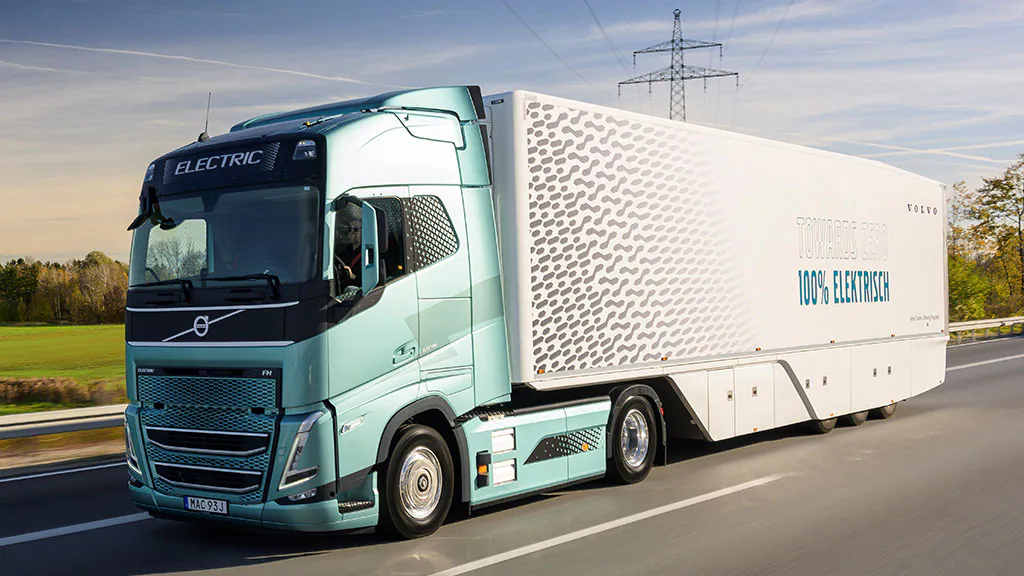
The Environmental Benefits of Electric Trucks
Freight transportation contributes a considerable amount to air pollution. Electric trucks have the potential to significantly decrease emissions, and major fleets have committed to transitioning their trucks over to zero emission vehicles by 2030.
Electric trucks necessitate charging stations that have the capacity to accommodate large volumes of trucks; this poses a challenge to cities and regions worldwide.
Less Greenhouse Gas Emissions
Older diesel trucks produce many of the same greenhouse gases (GHGs) and pollutants — including particulate matter, nitrogen oxides, and other gases — which lead to cardiovascular, respiratory, cancerous, or other diseases. On the other hand, electric cars do not emit GHGs while driving and almost no pollutants as opposed to diesels.
But life cycle analysis must also consider emissions across the entire lifespan of a car, from manufacturing to raw material extraction, battery fabrication, battery charge to power the truck and recycling.
These lowest lifecycle greenhouse gas emissions come from battery electric trucks in decarbonised environments, followed by hydrogen trucks. This is because they have higher efficiency electric drivetrains and renewable electricity source power grids offering electricity. Additionally, lower energy use reduces wear and tear on components which prolongs the lives of their component.
Lower Noise Levels
Electric motors (EVs) do not emit combustion and exhaust emissions that pollute our acoustics. It’s a huge step towards allowing EVs to be substantially quieter on the road and offer drivers an easier commute.
Regenerative braking also reduces brake wear and battery life, reducing your vehicle’s need for traditional oil for maintenance as well. This is an economical and resource efficient solution!
EVs are much quieter than diesel vehicles, so they’re a great choice for cities and other urban developments with traffic jams and constant traffic stops. Research has shown that EV’ing heavy-duty trucks could deliver dramatic health benefits on certain streets if you factor in renewable energy costs when you do the calculations.
Less Maintenance — No Need to Pay Much For Your Service.
Electric vehicles are cheaper to maintain than diesel cars, because there are fewer moving parts to maintain and no emission to cause a problem – lower maintenance costs also.
EVs were significantly greater than ICE vehicles when it came to total lifecycle carbon (resource and battery manufacturing, electricity grid emissions). All-EV fleets could support fleets reaching their sustainability goals with fewer investments in time and effort.
Electrifying trucks will cut GHG emissions and health impacts faster at most corridors than removing diesel trucks by current policy – this is proof that electrification of trucks is a good short-term option for most corridors.
Low Fuel Prices – Save On Fuel!
Making the transition to electric vehicles is not only environmental, it also saves fleet managers money by lowering their fuel and maintenance costs. The upfront investment might be a bit higher in comparison to diesel, but in time the initial cost will pay off!
There are even companies offering grants to help offset the expense of electric semi trucks. This combined with their LCFS credit generation makes electric trucks a viable alternative to diesel for long-haul routes.
Efficient trucks have no tailpipe emissions, and will even contribute to sustainable transportation when their batteries are filled with renewable energy. Their carbon emissions reductions can help drastically to increase air quality near populated motorways and reduce deaths due to air pollution.
Reduced Noise
EVs propulsion itself is accomplished by electric motors, which mitigates most of the noise created by traditional combustion engine trucks. This can be particularly useful in cities where locals are more prone to noise complaints in the early hours when deliveries happen.
The transition to EVs can even significantly reduce idle noise and thus, air quality. idling engines generate a huge portion of global emissions; eliminating this pollution only strengthens it.
Switching to electric vehicles (EVs) can make fleet managers a lot of money because they are more affordable to operate than diesel vehicles when it comes to electricity costs and maintenance. In addition, numerous states and countries provide incentives and rebates for businesses that select EVs.


